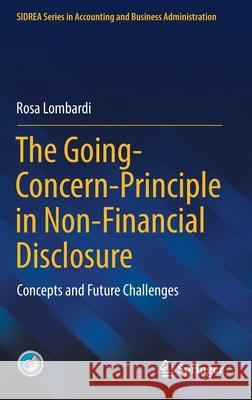The Going-Concern-Principle in Non-Financial Disclosure: Concepts and Future Challenges » książka
topmenu
The Going-Concern-Principle in Non-Financial Disclosure: Concepts and Future Challenges
ISBN-13: 9783030811266 / Angielski / Twarda / 2021 / 100 str.
Kategorie:
Kategorie BISAC:
Wydawca:
Springer
Seria wydawnicza:
Język:
Angielski
ISBN-13:
9783030811266
Rok wydania:
2021
Wydanie:
2021
Numer serii:
001228153
Ilość stron:
100
Waga:
0.34 kg
Wymiary:
23.39 x 15.6 x 0.79
Oprawa:
Twarda
Wolumenów:
01
Dodatkowe informacje:
Wydanie ilustrowane











